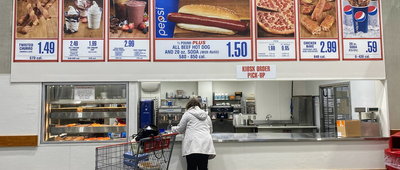Americans are obsessed with their lawns. That verdant expanse of green serves as play space for kids and a pleasing surface for adult lounging. Some homeowners' associations and even municipalities insist on maintaining a mowed, green lawn, the better to preserve aesthetic standards. But as summer droughts threaten more of the country, there are locales where a lush greensward makes no sense, either economically or environmentally.
The National Gardening Association estimates that the average household spends close to $350 a year (and countless hours) tending their lawns. The most expensive factor in lawn care, by far, is water. According to the EPA, the average American home taps 58,000 gallons of water for outdoor purposes each year. Water usage peaks in summer and anyone who lives in rain-starved areas is likely to see much higher water bills during these months.
Although some grass is nice, a whole yard full may be an unnecessary luxury, especially where water resources are strained. There are strategies, however, for preserving at least part of a lawn in a more water-wise fashion. Shaded lawns don't need as much water, for example, so plant trees and save. A smart controller hitched to an automatic sprinkler system turns on and off, based on weather conditions, so there's no wasteful spritzing. Artificial turf is another option for total or partial lawn replacement, as are paving and gravel. Xeriscaping, plantings of native flora that thrive on available rainwater, is gaining ground in some regions.
The incentive to ditch the lawn is looming ever larger. Water prices have been rising steadily in many regions. In California, recurring drought has prompted the governor to request that residents curtail their water consumption by 20 percent. Steve Orlowsky lives in the Calejo Valley, where annual rainfall averages about 10 to 12 inches. He has replaced the grass in much of his 10,000-square-foot yard with a drought-tolerant garden. Even so, his monthly water bills in the summer jump to about $200 from $140. Some neighbors have just given up on anything green. "There is no motivation to keep a lawn here," Orlowsky points out.
Quite the opposite, in fact. Municipalities and associated utilities throughout California are offering rebates for turf replacement. The Los Angeles Department of Power and Water will pay $2 per square foot (up to $4,000) to replace a yard full of grass with something more drought tolerant. The Bay Area Water Supply and Conservation Agency is offering rebates of $1,000 to $5,000 to customers who convert lawns to more water-efficient landscapes. Rebates for xeriscaping are available to residents of several towns and cities in Arizona, Nevada, New Mexico, Texas, Colorado, Oregon, Utah, and Washington.
Dispensing with grass in favor of drought-tolerant groundcover (plants that spread but don't grow tall) that requires little or no care is relatively inexpensive. The cost of planting clover, which is good for the soil and can tolerate heat, drought, and dog urine, costs about $36 for 5 pounds of seed, enough to cover one acre. Clover won't stand up to hearty games of badminton or touch football, but it has the look of a lawn without the care and expense.
Other xeriscape options include drought-tolerant shrubs, trees, ornamental grasses, and perennials; zoned water use, which locates water-hogging plants in the same spot; and compost and mulch that retain moisture in the soil. Experts estimate that water-wise landscaping can reduce water consumption by up to 70 percent.
Granted, the cost of planting a yard full of such flora adds up, particularly if there's no rebate on offer. And opting for smaller, cheaper plants requires more frequent watering in the first year while root systems develop. Ultimately, though, replacing most of your lawn with turf, gravel, rock, and xeriscaped plants will put money in your pocket and some time on your hands.








